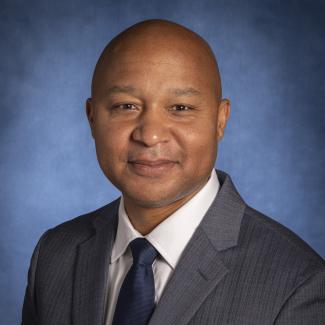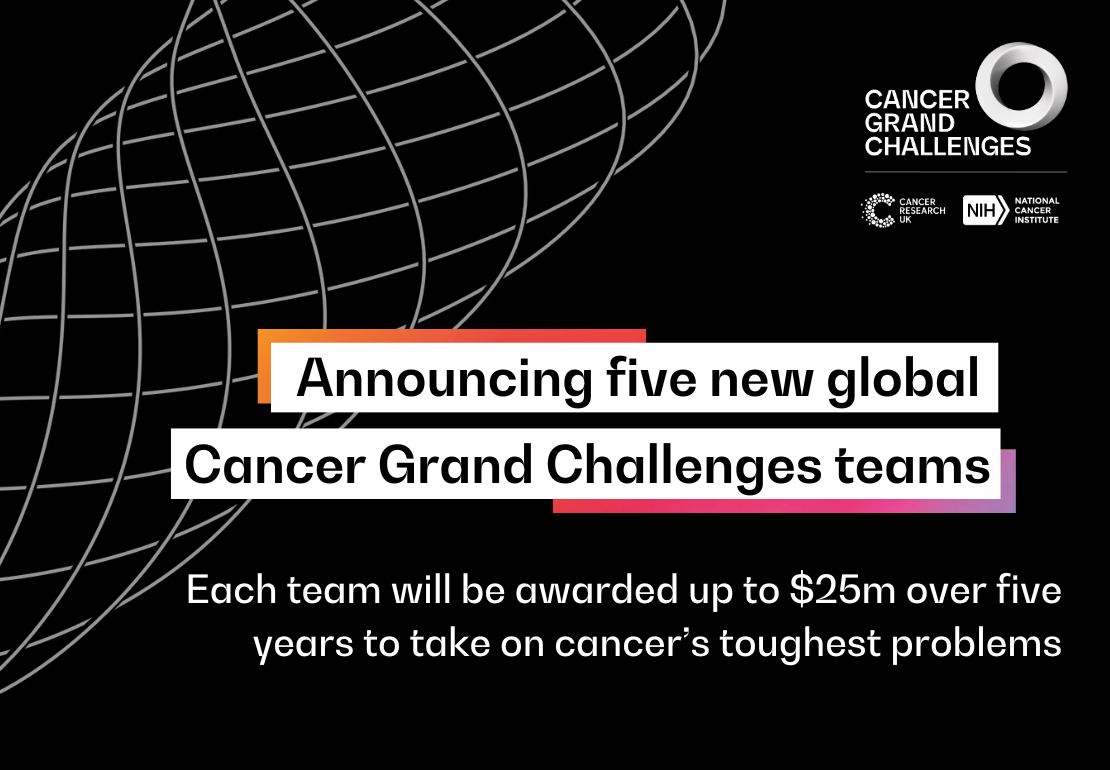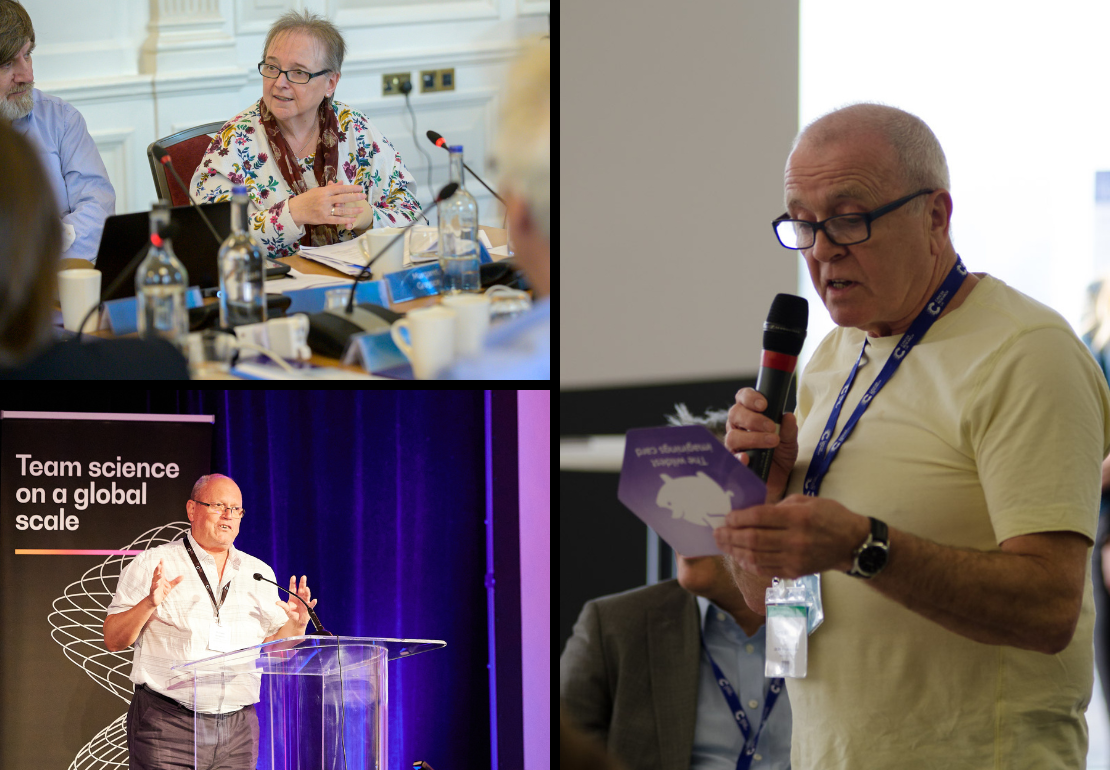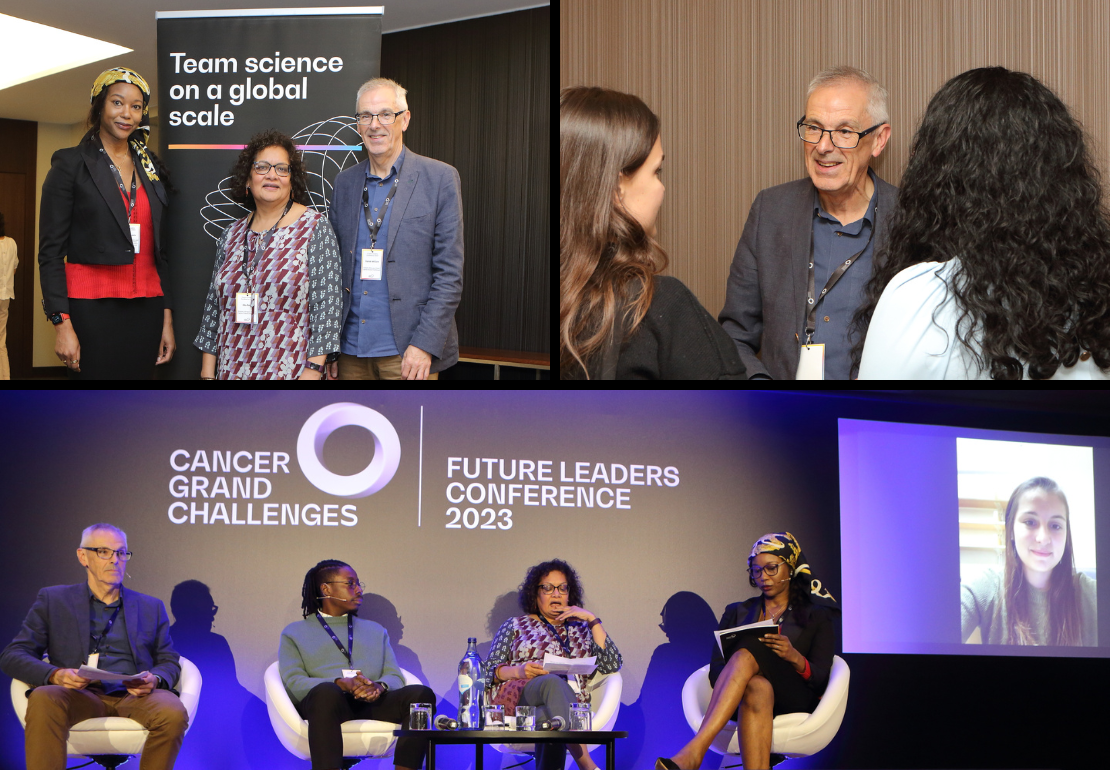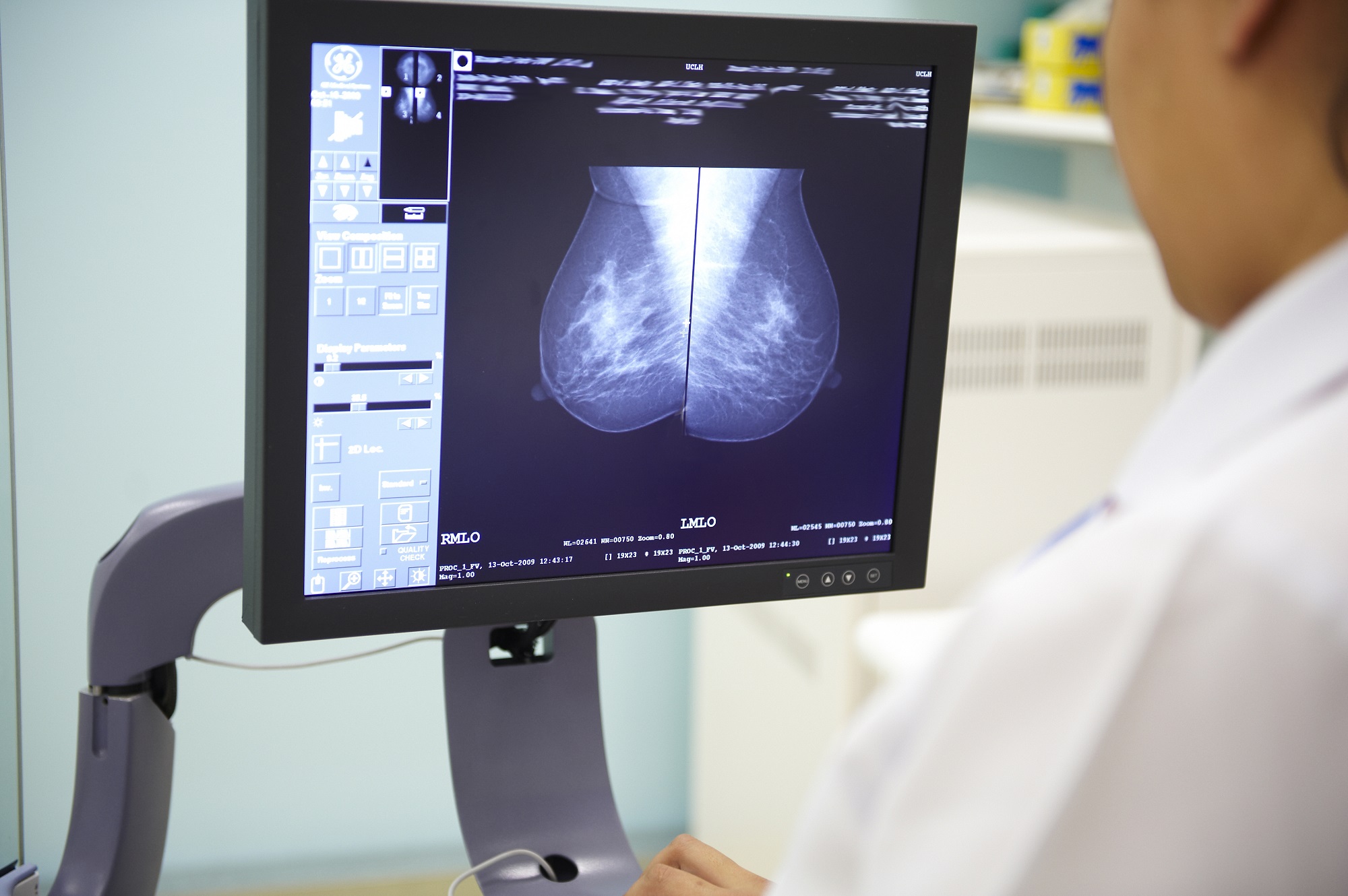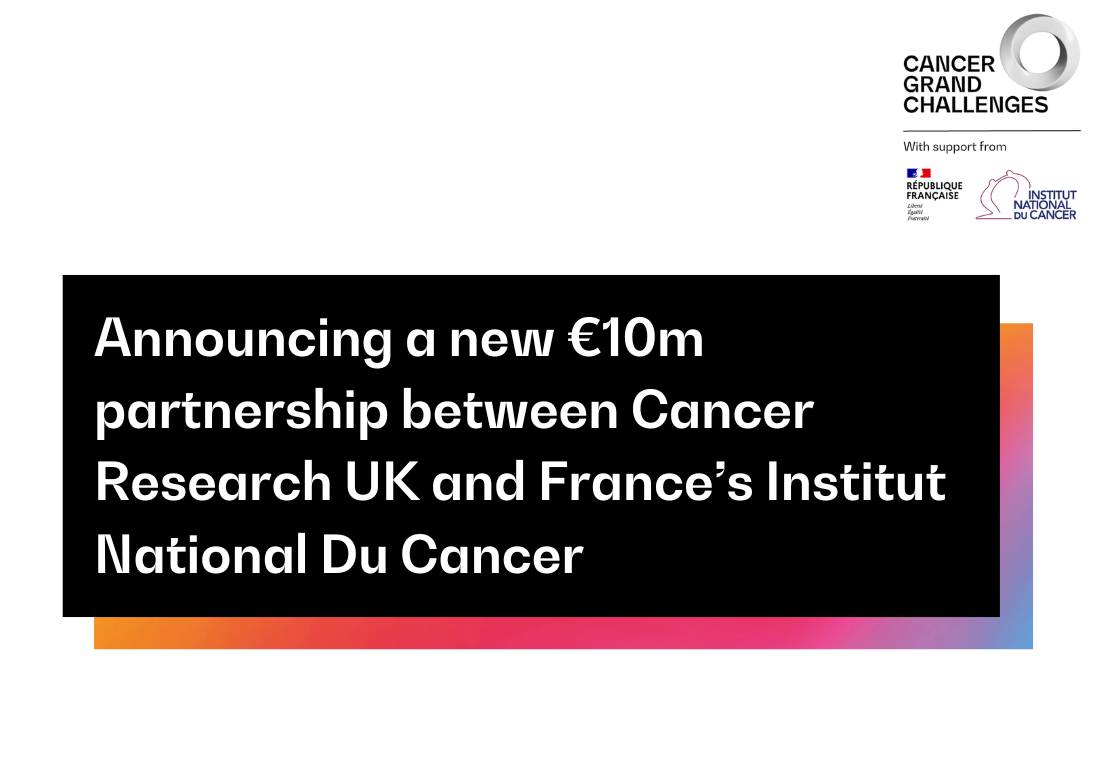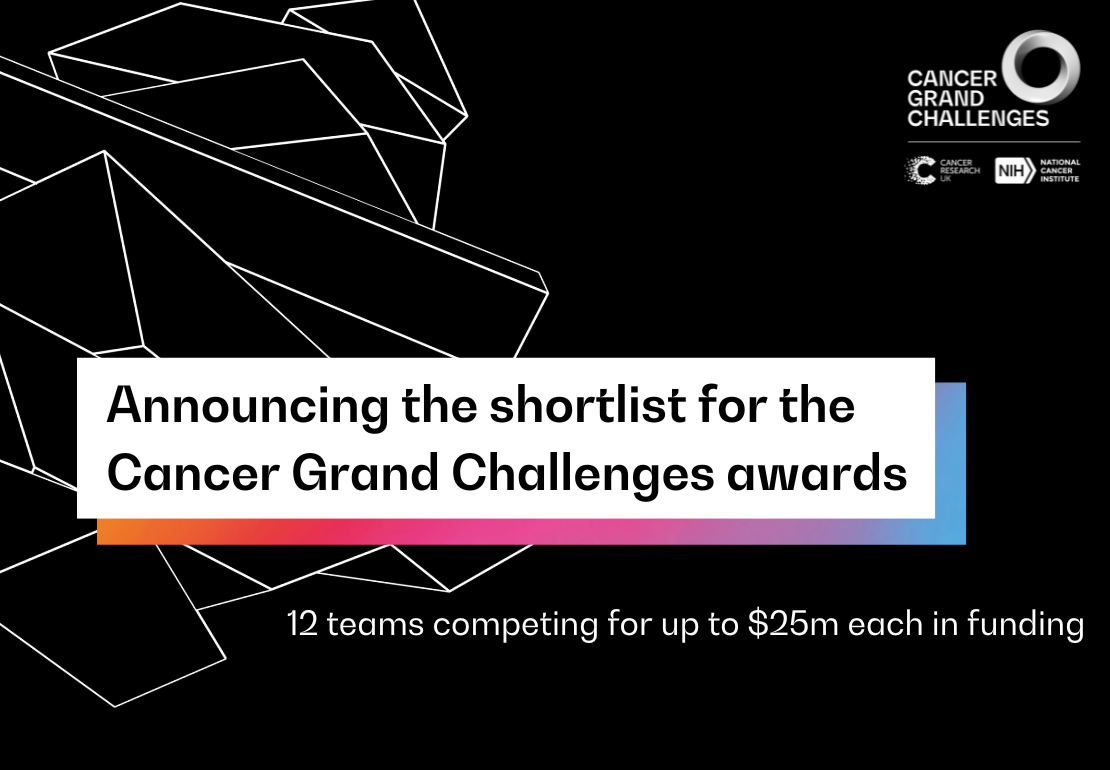SAMBAI
Understand the mechanisms through which genetics, biology, and social determinants affect cancer risk and outcomes in diverse populations, to motivate interventions to reduce cancer inequities

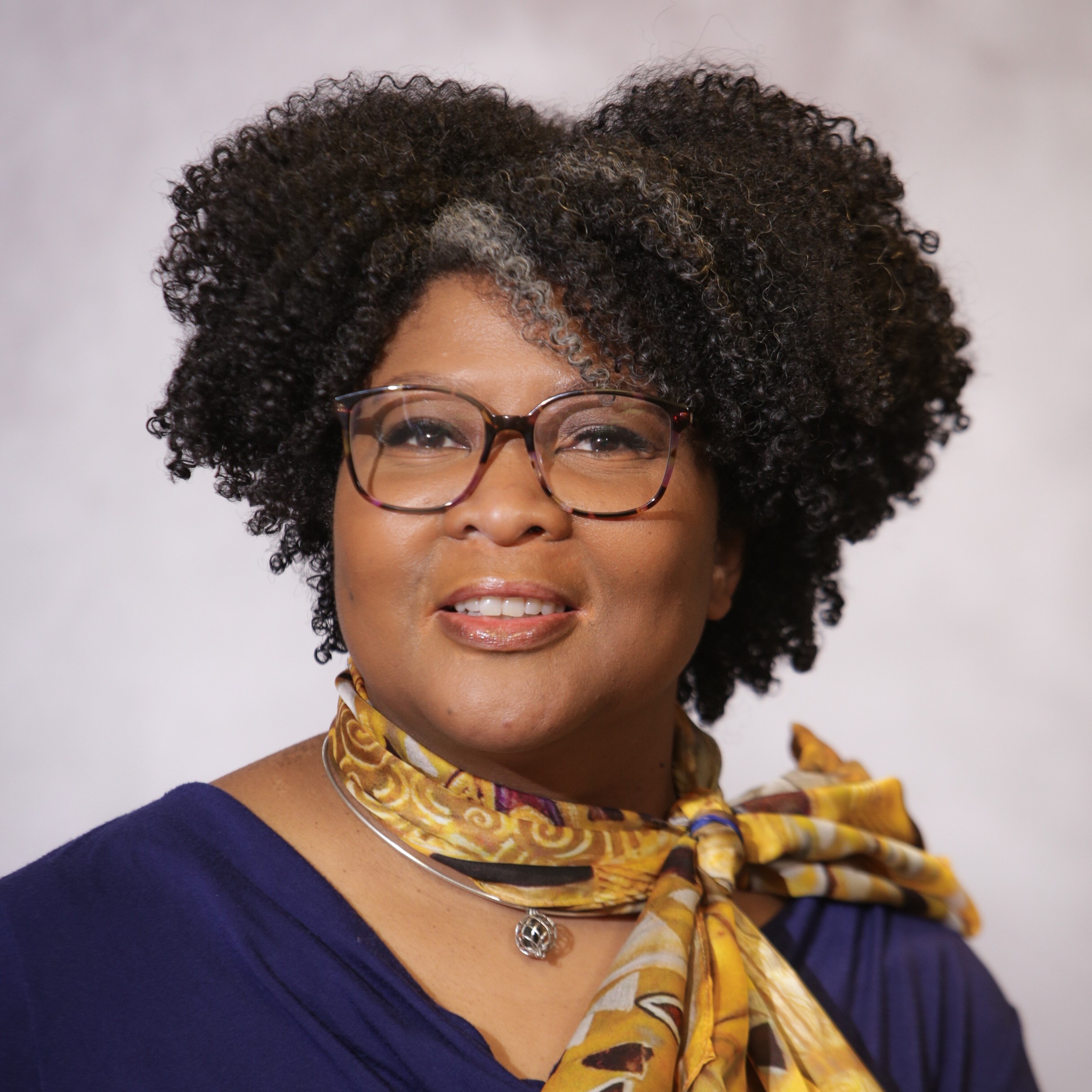
Professor Melissa Davis, Team Lead
Director, Institute of Translational Genomic Medicine
Morehouse School of Medicine
INSTITUTIONS
15
LOCATIONS
Ghana, South Africa, UK, US
FUNDED BY
Cancer Research UK and the National Cancer Institute
SPECIALISMS
computational biology, epidemiology, exposomics, genomics, immunology
Societal, ancestry, molecular and biological analyses of inequalities
Funded by:

SAMBAI will generate a comprehensive database with measurements of social, environmental, genetic and immunological factors that cause and influence disparate cancer outcomes in underserved populations of African descent.
Inequities in cancer prevention, screening and treatment lead to disparities in cancer incidence and mortality and are major public-health challenges. Because the relative contributions of genetic/epigenetic, biological and social drivers of cancer aetiology remain unclear, approaches aimed at reducing inequities remain inadequate. A crucial step in reaching cancer equity is fully understanding all aspects underpinning disparities, from environment to intrinsic biology.
SAMBAI is taking a multi-level, interdisciplinary approach to build the SAMBAI Biobank and Data Repository for Cancer Equity Research, spanning diverse cohorts of African descent from regions of Africa, the UK and the US. This unprecedented resource will enable an integrated set of analyses to define the factors that influence disparate outcomes in these populations.
The team will focus on breast, pancreatic and prostate cancers – three cancer types that have a disproportionately higher rate of aggressive tumour grade and early onset in Black people – and aims to deliver a data repository with millions of data features per person for 40,000 people.
Tackling the Cancer Inequities challenge
SAMBAI’s comprehensive and systematic approach spans four levels of data:
Social determinants
Using multiple modalities, the team will collect data on the social determinants of health and reset the way these factors are measured, to accurately document the lived experience of underserved populations of African descent.
Social determinants will be assessed across multiple levels using qualitative and quantitative metrics, including individual and lifestyle behaviours; socio-cultural experiences, such as social interactions, social support, caregiving roles and encounters of racism; characteristics of the immediate environment, including housing quality, neighbourhood safety and access to healthy food; and structural-political determinants, such as government policies, laws, economic and healthcare systems, and employment opportunities.
Exposomics
To understand the biological consequences of the lived environment on health and disease, the team will measure and quantify, on a molecular scale, the external and internal factors that these populations are exposed to (the exposome). Using mass spectrometry, the team will collect data on thousands of exogenous and endogenous molecules to identify risk factors relevant to these populations.
Genomics
Using whole-genome and RNA sequencing, the team will map the genetic diversity in populations of African descent alongside the social determinants and exposome data to identify distinct genetic factors contributing to cancer inequities. In addition to DNA sequence analyses, the team will look at epigenetics to determine whether external exposures based on lived experience have imprinted on the germline and tumour genomes.
Immune profiling
Stress caused by structural racism, discrimination and marginalisation has been mechanistically linked to elevated systemic inflammation in African Americans and other populations in socially deprived settings, which may correlate with observed population differences in tumour immune profiles. The team will look at the immune cells and inflammatory proteins present in circulation and within tumours of a subset of patients in the SAMBAI cohort, stratified by social factors and environmental exposures, to identify social/environmental mechanisms that influence cancer immunological profiles.
SAMBAI’s data repository will be the first dataset encompassing this breadth of information (or factors) for populations of African descent. By using the dataset to delve into the factors that are causing cancer disparities, SAMBAI hopes its findings will inform policies and generate opportunities for intervention specific to these populations.
The team’s patient advocates will play an integral role in engaging with patient communities and facilitating policy changes for effective intervention.
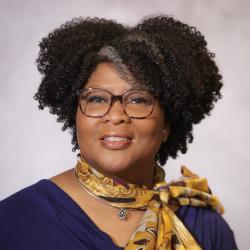
Professor Melissa Davis, Team Lead
Director, Institute of Translational Genomic Medicine
Our work will be a catalyst for exponential change. In partnership with patients, the resources we will create can galvanise the work of many other groups. We will reposition important research questions in a better scope, with comprehensive data, that represents a global context.
Plain language summary
Advances in cancer diagnosis and treatment have not benefited all people across race and ethnic groups. These cancer inequities are a major concern in public health. They occur because some people live in unhealthy environments and have less access to healthcare than others. These social factors can lead to more aggressive cancers and delay diagnosis and treatment. Additionally, the genetics and biology of specific populations may also contribute to inequities. However, these factors have not been equally studied across populations.
The SAMBAI team is dedicated to studying populations of African descent in Africa, the UK and the US. By working with patient communities, the team will gather data on individuals’ social circumstances, environments, genetics and the immune cells within their tumours. All this data will be stored in the anonymised SAMBAI Biobank and Data Repository for Cancer Equity Research. The team’s specific focus is on breast, pancreatic and prostate cancers, as these types of cancer are typically more aggressive and are diagnosed at an earlier age in Black individuals.
Through detailed profiles of each participant in their research, SAMBAI aims to determine how genetics, the environment and social factors combine and interact to influence cancer outcomes and disparities within these populations. With this knowledge, the team aspires to develop strategies for cancer prevention and treatment tailored to these specific communities.
Dr. Davis graduated from an undergraduate Historically Black College, Albany State University in Albany, Georgia, and obtained her PhD in Molecular Genetics at University of Georgia in Athens. Her postdoctoral training was in functional genomics and systems biology, which led to her focus in racial disparities of breast cancer mortality and using genetic ancestry tools to identify biological determinants of these disparities. Her pioneering work has uncovered groundbreaking discoveries in genetic networks related to immunological and tumor phenotype distinctions across patient groups from African ancestry.
Organisation
Morehouse School of Medicine
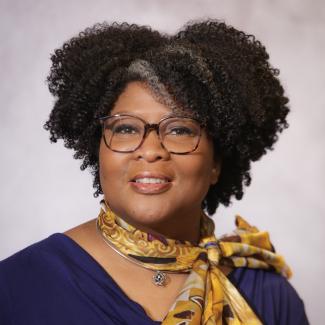
Yaw Bediako is a Ghanaian immunologist and biotech entrepreneur. Yaw obtained a PhD at Northwestern University, Chicago, IL, and undertook post-doctoral fellowships at the KEMRI-Wellcome Trust Programme in Kenya and subsequently at the Francis Crick Institute in London. In 2019 he took up a faculty appointment at the West African Centre for Cell Biology of Infectious Pathogens (WACCBIP) at the University of Ghana and was one of 5 scientists selected in the inaugural round of the prestigious Crick Africa Network Fellowship.
Soon after returning to Ghana, Yaw became increasingly concerned about the almost complete lack of biotech industry across the African continent. Convinced that private biotech is crucial to the establishment of a sustainable R&D ecosystem, in June 2020 Yaw founded Yemaachi Biotech (www.yemaachi.com) an immunogenomics research company. Yemaachi’s vision is to leverage Africa’s unrivalled genetic diversity to develop novel diagnostic and therapeutic targets for cancer, that work uniformly well irrespective of genetic background
In November 2021, Yaw was selected as a Calestous Juma Science Leadership Fellow by the Bill and Melinda Gates Foundation. Yaw is also a fellow of the Ghana Young Academy and an Affiliate member of the African Academy of Sciences. In 2022, Yaw was recognized as one of the top 40 under 40 business people in Ghana, and in January of 2023, was selected as one of the 100 most influential Africans by the New African magazine.
Organisation
Yemaachi Biotech
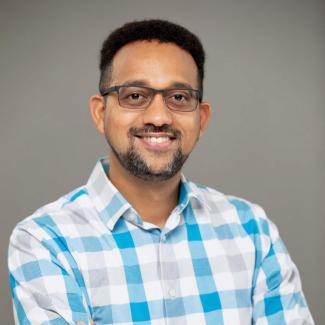
Dr. Carson is the Program Co-Leader for the Health Outcomes and Behavior Program at Moffitt Cancer Center. She is an Associate Member and the inaugural George Edgecomb Scholar in the Department of Health Outcomes and Behavior in the Division of Population Sciences at Moffitt Cancer Center. She is also an Associate Professor in the Department of Oncological Sciences in the Morsani College of Medicine at the University of South Florida. Dr. Carson completed her Bachelor’s degree at Florida State University. She later received her Master’s degree and Ph.D. in Epidemiology from the University of Alabama at Birmingham and completed a post-doctoral fellowship at the University of Arkansas for Medical Sciences. As an applied epidemiologist, Dr. Carson has made significant contributions to the field of obesity treatment and cancer prevention research through her population-based, bio-behavioral observational and intervention studies. Dr. Carson is currently the PI of 2 NIH-funded R01 studies investigating behavioral and biological aspects of energy balance, cancer prevention, and health disparities. Dr. Carson has published in multiple peer-reviewed journals including Obesity, Psychosomatic Medicine, and JAMA.
Organisation
Moffitt Cancer Center
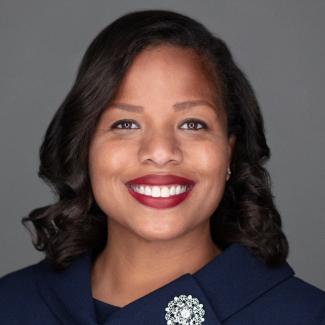
Isidro joined the EMBL-EBI as Research Group Leader in June 2019 after completing postdoctoral training at Harvard Medical School and receiving a PhD from the Pasteur Institute. His laboratory focuses on the development of computational methods for early cancer detection and to study the mechanisms underpinning cancer evolution using whole-genome sequencing. Recent work by his group includes the discovery of novel mechanisms of cancer development, such as Loss-Translocation-Amplification chromothripsis in ostesarcoma. A major goal of his group is to harness novel technologies applicable in clinical settings to improve early cancer detection and treatment selection. For instance, his laboratory is leading the application of long-read sequencing technologies for tumour profiling and liquid biopsy analysis through various national studies, such as the CRUK-funded Stratified Medicine Pediatrics (SMPEDS) programme. In SAMBAI, Isidro will co-lead the genomics analysis work package, with a focus on harnessing long-read sequencing methods to study complex forms of structural vation in tumours using technologies compatible with the analysis of clinical samples in limited-resource settings, thereby contributing to reducing current disparities in access to genomic medicine.
Organisation
European Molecular Biology Laboratory

Zodwa Dlamini is a Professor of Molecular Oncology and the Founding Director of the Pan African Cancer Research Institute (PACRI). Additionally, she is the Director of the SAMRC Precision Oncology Research Unit (PORU) and a DSI/NRF SARChI Chair in Precision Oncology and Cancer Prevention (POCP. Professor Dlamini also serves as a distinguished member of the American Association for Cancer Research (AACR) Regional Advisory Committee on Sub-Saharan Africa. She additionally guides the AACR Pathology Resources in Africa Advisory Group. Professor Dlamini extends her contributions to the African Organisation for Research and Training in Cancer (AORTIC), where she actively influences the organization's strategic direction and mission as a member of the Research Committee Scientific Advisory Board. Her dedication to advancing cancer research in Africa was honoured with a Special Award from the Council and Executive of the African Society of Morphology and she was then admitted as an "Honorary Fellow" of the West African College of Morphologists in 2023. Through her multifaceted efforts, Professor Zodwa Dlamini remains steadfast in her commitment to shaping the ever-evolving landscape of cancer research and her journey is driven by an unshakable belief that cancer can be conquered, paving the way for a healthier and more equitable world.
Organisation
University of Pretoria
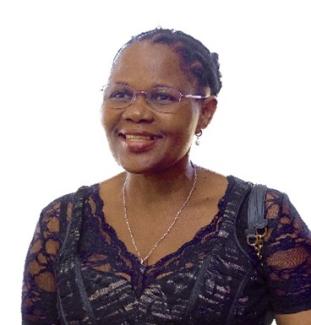
Dr Elemento is the Director of the Caryl and Israel Englander Institute for Precision Medicine, a large multi-disciplinary institute that uses precision medicine technologies and informatics to uncover the molecular mechanisms of disease and individualize disease treatment and prevention. He is also Associate Director of the Clinical and Translational Science Center at Weill Cornell and Professor in the Department of Physiology and Biophysics. His research group combines Big Data, Artificial Intelligence with experimentation and genomic profiling to accelerate the discovery of cancer cures. They have published over 450 scientific papers in the area of genomics, epigenomics, computational biology and drug discovery and are thrilled to be part of team SAMBAI and are dedicated to driving impactful change in the landscape of cancer care and cancer inequities.
Organisation
Cornell University

As a Triple Negative Breast Cancer Survivor/Thriver, Ricki’s personal purpose, passion, mission, ministry, and blessing is to bring focus, attention, research, science, and action to eradicating Black Breast Cancer, and supporting and coaching what she calls her “Blessties” through their breast cancer experience.
Ricki is an award-winning seasoned marketing veteran that has transformed her strategic acumen into breast cancer advocacy. Ricki co-founded and serves as CEO of TOUCH, The Black Breast Cancer Alliance to address Black Breast Cancer as a unique and special disease state, with the overall goal of reducing the mortality rate for Black women. Ricki founded and serves as co-host for “The Doctor Is In,” a weekly live breast cancer advocacy web series on the BlackDoctor.org Facebook page that reaches over 3 million viewers. She is a founding member of #BlackDataMatters, to elevate the importance of Black Women participating in clinical trial research. In January 2022, she started the When We Tri(al) Movement to change the game on Black women participating in clinical trials to improve outcomes for Black women with breast cancer. The Movement has resulted in over 16,000 Black women in clinical trial portals in the past year. In January 2023, she founded the For The Love of My Gurls Campaign to drive awareness and action, now having reached over 350,000 young Black women. In 2023, she launched the first ever advocacy led nurse navigator outreach program for pharmaceutical company clinical trials to elevate the inclusion and participation of Black women.
Ricki is a board member for Xeris Biopharma. She is a member of the Board of Trustees for the Triple Negative Breast Cancer Foundation, and a board member for the Center for Healthcare Innovation. Ricki serves on the President’s Cancer Panel: Innovative Navigation Models Workgroup, and the American Cancer Society National Breast Cancer Roundtable Steering Committee where she serves as co-leader for the Clinical Trials Work Group and the Roundtable Membership Committee. She serves on the National Minority Quality Forum Cancer Stage Shifting Initiative Scientific Advisory Board, Cancer X Workgroups, is a Consumer Reviewer for the Breast Cancer Research Program, and a member of the FDA Patient Engagement Collaborative. Ricki is on the Executive Team of the Metastatic Breast Cancer Alliance. Ricki serves on the Daichii Sankyo Global Advocacy Leaders Think Tank Steering Committee, the Pfizer Breast Cancer Advocacy Steering Committee, the Astrazeneca Breast Cancer Forum, and is an Ambassador for the Novartis More Than Just Words Campaign. She speaks avidly as a Patient Advocate. Ricki is on the leadership team of the BOW Collective and member of The Links, Inc.
Organisation
TOUCH, The Black Breast Cancer Alliance

Dr Fieke Froeling is a Medical Oncologist and translational cancer researcher at the University of Glasgow with an overall research focus on tumour-host interactions and therapeutic development for pancreatic cancer. She joined the University of Glasgow and CRUK Scotland Institute in 2020 to start her translational research group. Using well-annotated patient samples, routinely collected health care data, and patient-derived pre-clinical model systems her research aims to understand the complex dynamics of tumour-host interactions in pancreatic cancer, and identify novel therapeutic approaches with candidate biomarkers that can be tested in clinical trials. Clinically, she works as a Medical Oncologist at the Beatson West of Scotland Cancer, is the pancreatic cancer lead of the Glasgow Experimental Cancer Medicine Centre, is principal investigator of multiple clinical trials, leads the national molecular tumour board for Precision-Panc, and co-leads the UK novel therapeutics working group for pancreatic cancer. Overall, this allows her to focus on developing personalised therapeutic strategies that emanate from discoveries in both basic science and reverse translation from clinical observation.
Organisation
University of Glasgow
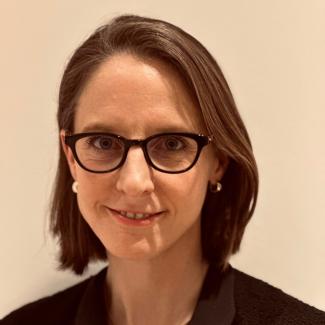
Dr. Imieliński is a physician-scientist whose research is focused on understanding patterns of somatic genetic variation in human cancer, particularly structural variants that rearranges, delete, and/or copy large segments of DNA. His laboratory has developed new approaches to analyze, interpret, and visualize cancer whole genomes, uncovering new classes of genomic rearrangements including those linked to BRCA1 and BRCA2 deficiency. As a molecular genetic pathologist, he is interested in clinical applications of whole genome sequencing to precision oncology. Dr. Imieliński obtained his M.D. and Ph.D. in genomics and computational biology at the University of Pennsylvania School of Medicine, and a B.S. in Computer Science from Rutgers College. He completed his residency and fellowship in molecular pathology at Massachusetts General Hospital and Harvard Medical School followed by postdoctoral research at the Broad Institute and Dana Farber Cancer Institute. He is currently Director of Cancer Genetics and Genomics at the Perlmutter Cancer Center in the NYU Grossman School of Medicine, where he is also an Associate Professor of Pathology. He is also an attending pathologist at NYU Langone Health and Core Member at the New York Genome Center.
Organisation
New York University
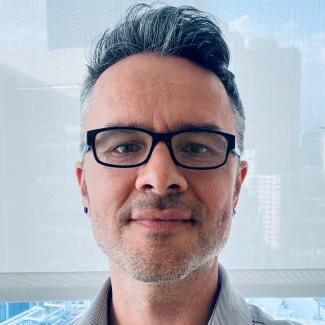
Dr Sheeba Irshad is a breast cancer clinician-scientist, specializing in tumor immunology, and pursuing a combined academic and clinical career in Medical Oncology. Following her return as a visiting scientist at The Sidney Kimmel Comprehensive Cancer Center at John’s Hopkins University, Baltimore; Dr Irshad was appointed as a Clinical Deputy Head of King’s College London Breast Cancer Now Research Unit Programme in 2018. She specialises in researching hard to treat breast cancers, such as those that are resistant to chemotherapy. Her research is focused on understanding the tumour-immune cell cross talk in chemotherapy resistant cancers with particular emphasis on understanding mechanisms that underpin how cells from the immune system move within tumours. The goal is to find effective immunotherapy treatments for patients. Dr Irshad led the multi-centre clinical trial investigating the immune responses against Sars-Cov-2 in cancer patients. Findings from her Sars-cov-2 fOr cAncer Patients (SOAP) study, published in several high-impact papers directly contributed to changes in vaccine policy in the UK, providing the world’s first cancer specific COVID19 immune response dataset; and were also the first to report on immune protection after the Pfizer-COVID-19 vaccine in immunocompromised patient populations. She is also the translational lead and coordinating investigator for a clinical trial platform to explore the potential interactions between DNA damage response inhibitors and immunotherapy in high-risk Triple Negative Breast Cancers.
Organisation
King's College London
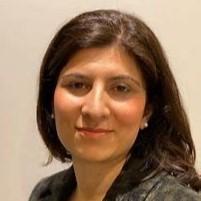
Dr. Lauren E. McCullough is an Associate Professor in the Department of Epidemiology at the Rollins School of Public Health, a member of the Winshupp Cancer Institute, and Visiting Scientific Director at the American Cancer Society. Her overarching research interests are in cancer epidemiology, specifically the role of social and structural determinates of health to the breast tumor microenvironment, as well as disparities in cancer outcomes. Her research program integrates molecular epidemiology, epigenetics, and other biomarkers for disease risk and progression; environmental and social epidemiology; health services research; and causal inference methods. The goals of her research program, BRIDGE, is to improve cancer outcomes in underserved populations by bridging clinical and population research, molecular and social epidemiology, and scientist with the communities they serve. In doing so, her team hopes to identify culturally relevant and sustainable targets for pharmacologic, behavioral, and policy intervention.
Organisation
Emory University
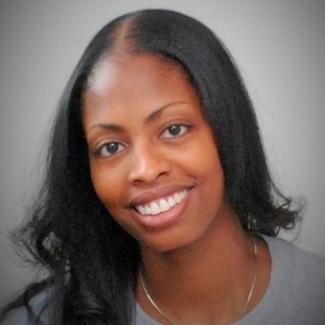
Dr. Miller serves as Vice Dean for Research Strategy and Innovation and Professor of Environmental Health Sciences in the Mailman School of Public Health, and Professor of Molecular Pharmacology and Therapeutics in the Vagelos College of Physicians and Surgeons at Columbia University in New York. He completed his PhD in Pharmacology and Toxicology and postdoctoral training in Molecular Neuroscience. Dr. Miller founded the first exposome center in the U.S. and wrote the first book on the topic. He has helped develop high-resolution mass spectrometry methods to provide an omic-scale analysis of the human exposome. He is a member of the National Institutes of Health All of Us Research Program Advisory Panel and the National Institute of Environmental Health Sciences Advisory Council. Dr. Miller is the founding editor of the new journal Exposome, published by Oxford University Press.
Organisation
Columbia University
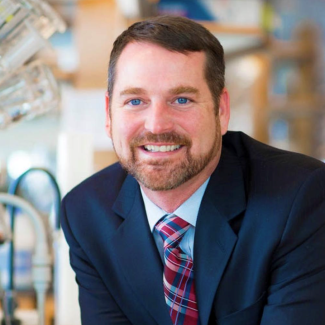
Nigel Mongan was awarded his PhD from the University of Cambridge. He completed postdoctoral training also at the University of Cambridge and at Weill Cornell Medicine, where he became a faculty member in 2004. He joined the University of Nottingham in 2010 and continues to have an adjunct faculty appointment at Weill Cornell Medicine. His research interests include epigenetic and epitranscriptomic determinants of treatment resistance in prostate and breast cancers.
Nigel holds leadership roles at the University of Nottingham’s Faculty of Medicine and Health Sciences, and Centre for Cancer Sciences. He is a Fellow of the Royal College of Pathologists and has received grants from Prostate Cancer UK, Prostate Cancer Foundation, John Black Charitable Foundation and support from the University of Nottingham’s ambitious investment in cancer research.
The University of Nottingham’s Centre for Cancer Sciences will support team SAMBAI by bringing expertise in breast and prostate cancer immunology, tumor microenvironment, gene regulation and digital pathology, and will support capacity building in partner institutions by providing clinical masterclasses in pathology. Through the involvement of early career researchers, (including a recently awarded Prostate Cancer UK Career Acceleration Fellow), and the Nottingham Prostate Cancer Support Group and Nottingham Breast Cancer Research Centre in team SAMBAI, the University of Nottingham will train the next generation of patient-focussed translational researchers to serve all our communities to address cancer inequities.
Organisation
University of Nottingham
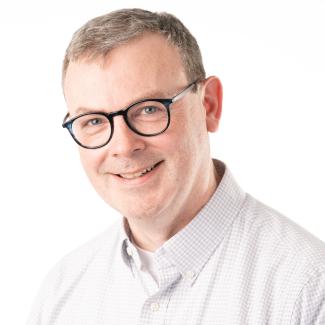
Nicolas Robine joined the New York Genome Center in April 2012. He graduated from an Engineering school in Paris (ESIEE-Paris), with an Msc in Bioinformatics from Goteborg (Sweden) and obtained his PhD at the Institut Curie in Paris for his work on the analyses of meiotic double-strand breaks in yeast. He did a postdoc at the Sloan-Kettering Institute in New York in the lab of Eric Lai, working on the annotations of drosophila small RNA (microRNA and piRNA) within the modENCODE consortium. At the New York Genome Center, where his current position is Director, Computational Biology, he leads a group of bioinformatics scientists and analysts, with projects applied to cancer genomics (tumor-normal whole-genome analysis, liquid biopsy, tumor evolution) and functional genomics (RNASeq, single-cell and multi-modal genomics).
Organisation
New York Genome Center
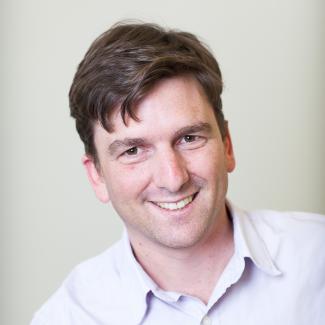
Dr. Yates started as a tenure track Assistant Professor at Tuskegee University in the Department of Biology and Center for Cancer Research and was promoted through the ranks to Full Professor and Director of Biomedical Research.
Dr. Yates is recognized for his international expert in addressing cancers with African Ancestry, and as a result, was appointed as the John R. Lewis Professor of Pathology, Oncology, and Urology and Director of Health Disparities and Global Health Equity at Johns Hopkins School of Medicine.
Dr. Yates Co-Directs the Transatlantic Prostate Cancer Consortium (CaPTC) which is a Nigerian-based consortium. In collaboration with Nigerian investigators, Dr. Yates’ lab performed the first whole genome sequencing study of prostate cancer in Nigeran men identifying a novel African Ancestry-specific BRCA1/2 variant.
Dr. Yates's lab also identified a subtype of Breast cancer called “Quadruple Negative Breast Cancer” (QNBC), which is more frequent in women of African Ancestry. This novel approach used genetic admixture analysis and identified a specific ancestry-associated immune-related signature in pancreatic, breast, and prostate Cancers. Using this signature, his lab was able to identify and develop a novel therapeutic that targets tumor-associated macrophages (TAMs) which contribute to increased tumor aggressiveness and therapeutic resistance. This novel therapy was recently licensed to Aurinia Pharma in October 2021 and is poised to enter clinical trials in 2025. Dr. Yates’s lab has been continuously funded by NIH and DoD CMDRP/PCRP for over 17 years.
Dr. Yates is featured on NCI’s website for the NCI Annual Plan & Budget Proposal for Fiscal Year 2023 which was provided to Congress President Joe Biden and the public. Dr. Yates co-chaired the 2022 American Association for Cancer Research Conference in April 2022 and was the 2022-2023 Chair of the Minorities in Cancer Research Council (MICR) within (AACR), which serves 7,000+ minority cancer-focused scientists.
Organisation
Johns Hopkins University
